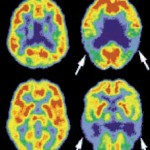Posted in
Mental health No discussion yet on December 22nd, 2012

Children too suffer from mental illness occasionally. There are many ways a child could get affected by mental disorders.
Children could have the following disorders:
Anxiety disorders: In this kind of disorder the children react to certain situation with a lot of dread and fear. They show a lot of physical signs like nervousness and anxiety , rapid heartbeat and sweating.
Pervasive developmental disorder: Children sometimes have a lot of confusion in thinking and also have a lot of problems to understand the world that is around them.
Disruptive behavior disorder: Children show a lot of disruptive behavior and normally have an inclination to defy rules and regulations. This is most pronounced when the child attends school.
Elimination disorder: In such a kind of disorder the child shows a kind of behavior related to body wastes.
Affective mood disorder: In such disorders there are regular feelings of hanging moods and sadness. The moods change rapidly and the person is very depressed [...]
Posted in
Mental health No discussion yet on November 9th, 2012

Mental health problems are those that trouble the mind and disturb the soul. Mental ill health feels as bad and as worse as it could be and is a kind of illness. Mental health problems are common and they are seen to affect almost every individual in some way or the other.
Mental ill health is a stigma and a discriminatory feeling for many in the society. There are a lot of myths and stories about mental ill health. But the fact is that mental ill health is a state of the mind and should be handled with a lot of care and caution.
It is really possible to overcome a mental health problem and live a productive and constructive life. It is also important to understand that being mentally sick is not a sign of weakness. It is alright to have a mentally weak mind but it is how you handle it that matters.
There are many kinds of mental illness so let us get to know what they are.
Depression is a condition that complete brings your mood down and makes you feel worthless, useless, fatigued [...]
Posted in
Mental health No discussion yet on May 14th, 2012

A spiritual writer Maulana Wahiduddin Khan has given a positive formula for de stressing. According to him the prophet said, “Waiting for a better tomorrow is also a form of worship.” This formula is tried and tested several times and on each occasion it is found to be the best in any given situation.
This formula has nothing mysterious about it and is based on the laws of nature, and if you adopt the formula you will become stress free and full of hope, you will think positively, and this will enhance your skills. If your mindset is negative, you diminish your abilities. When we shun negativity we initiate a process of enhancement of our potential.
Almost all cases of failure can be due to not following the laws of nature. This course will allow your vehicle to stray from the path and makes reaching your destination difficult.
The creator is Himself a positive mind and loves positivity. You must develop positivity and enhance your personality. Consequently you will experience success.
Posted in
Mental health No discussion yet on December 9th, 2011

Mental health doctors treat ADHD differently in every child. A perfect ADHD treatment plan helps in improving the child's functioning and also reduces the behavioral signs of ADHD. In this article, we have discussed about the alternative treatment procedures (treatment methods besides medications) used for treating children with ADHD.
Behavioral therapy:
Behavioral therapy for ADHD can be conducted both at home and at the office of the behaviorist. At times, the behaviorist can show the parent or other caregiver of the suffering child the techniques of conducting a behavioral therapy. Behavioral therapy teaches the child how to communicate in a better way. The other positive effects of such therapies include improvement in life skills, controlling outbursts and reducing disruptive tendencies.
Parenting skill:
One of the ways of reducing the signs of ADHD in a child is by giving him certain boundaries, clear rules and positive reinforceers. Such parenting skills mostly require help [...]
Posted in
Mental health No discussion yet on November 25th, 2011

Schizophrenia is a complex mental health problem affecting 1 in every 100 people of this world. According to recently obtained statistics, USA currently has almost 2.7 million residents suffering from schizophrenia. In men, the signs of this condition generally appear first during their late adolescence; but women start experiencing the initial signs of schizophrenia when they are in their twenties or early thirties. Below we have discussed about the most common early signs of schizophrenia.
Social behavior:
Often schizophrenia patients tend to withdraw themselves from normal social circumstances. There are instances when the patient has stopped taking part in all forms of extracurricular activities, started to create problems at work or in the school or began to act indifferently to issues of serious importance. Some schizophrenia patients prefer spending time alone; they might love to go for long walks or stay confined in their own room all the time. Trouble in making friends can be [...]
Posted in
Brain & Nervous System,
Disease & Disorders,
Mental health No discussion yet on April 1st, 2011
The latest research and books all have agreed to the fact that there are types of Attention Deficit Hyperactivity Disorders (ADHD). Until now, we used to classify this disorder into three types: Inattentive, Impulsive or Hyperactive, or Combined. However, today the diagnosis of the attention deficit hyperactivity disorders has become broader that now considers five different types of ADHD as listed below.
Inattentive: Similar to Winnie the Pooh – distractible and disorganized
Classic Hyperactive: Tigger type – inattentive, bouncy, restless, hyperactive, and impulsive
Over-Focused: Rabbit type – Inflexible, trouble moving attention, and debating
With Anxiety: Piglet type – Worrying too much, nervousness, and difficult to shift attention
With Depression: Eeyore type – severe depression and inattentive
The above listed attention deficit hyperactivity disorders are as per the experiences and clinical observation; which tend to revolve around the Winnie the Pooh, the [...]
Posted in
Brain & Nervous System,
Disease & Disorders,
Mental health No discussion yet on January 21st, 2011
With so much time dedicated towards buffing up external appearances, often the analogous efforts are lagging for chiselling mental muscle for which the expression ‘using it or losing it’ holds particularly true.
Alongside functions that could be performed everyday, the brain could even be trained by checking out ‘HAPPYneuron’ on line brain-teasers & adapted brain-fitness programme.
The mind consists of 5 key cognitive tasks, namely:
Attentiveness/concentration.
Verbal communication.
Recollection.
Optical-spatial proficiency.
Decision-making task.
Each one of these five regions must be regularly challenged, stimulated & effectually exercise for maintaining mental sharpness as one ages.
Here is a guide to some activities & brain exercises which could ably work on the key cognitive tasks of the brain – sparking up neural paths & links within.
Concentration
Concentration or attention is needed in almost all everyday activities. Superior concentration [...]
Posted in
Brain & Nervous System,
Disease & Disorders,
Mental health No discussion yet on January 10th, 2011

Multiple personality disorder (presently termed dissociative identity disorder) is a rather rife consequence of acute traumas in early infancy, generally intense, repeated abuse (physically, sexually, &/or emotionally).
Experiencing mild-ranging dissociations like when one daydreams or goes astray when doing some task happens to a large majority of people. But, multiple personality disorder is an acute type of dissociation, a mental process producing a dearth of correlation in an individual’s thought process, recollections, emotions, deeds or sense of self. It is believed to arise from a traumatic experience that the individual underwent. The disconnect factor is believed to be a means to cope – the individual plainly disconnects himself/herself from a scenario or experiences which are rife with violence, trauma or pains for assimilating with his/her cognisant self.
Multiple personality disorder does exist and typified by the subsistence of duo or more diverse or split personalities [...]
Posted in
Disease & Disorders,
Mental health No discussion yet on April 13th, 2010

Behavior Characteristics of Autism when diagnosed must not necessarily mean ceased love and hopes. However, mass media accounts boom with the most devastating and horrific incidents.
Here are several myths about behavioral characteristics of Autism that are wrongly disseminated by television, films and glossies which need to be debunked.
All Individuals with Autism are similar
Myth
A common thought process is that having encountered an autistic individual or having watched films like ‘Rain Man’ or ‘Temple grandin’ is enough to get a generalised view of what autism is and those individuals affected by it are like.
Truth
Individuals affected with autism could be vastly dissimilar from each other and each having his/her different behavioral characteristics of autism. The sole aspect which is commonly observed in autism affected people is their atypical difficulties in making social contact/communication.
Individuals with Autism fail to show any emotions/feelings
Myth
People [...]
Posted in
Brain & Nervous System,
Disease & Disorders,
Mental health,
News No discussion yet on March 19th, 2010

A team of Investigators from the NYU Langone Medical Center stated that their study findings indicate that individuals having a family history of Alzheimer’s disease mostly possess clump-like formations of toxic-natured protein accruement in their brains even despite being in normal health.
Study investigators stated that their findings could pave way to novel means of identifying individuals at risk of developing Alzheimer’s disease early on when some steps could be taken towards tackling it.
Researchers are hopeful that this study outcome could imminently be of great help in lucidly diagnosing Alzheimer’s disease prior to the condition turning symptomatic and when the brain is still in good health and therapies could have the most optimal outcomes.
The group of scientists are intent on continually following the entrants of this latest study for observing if they would be developing dementia and would like to duplicate the outcomes in a more large-scaled trial. Numerous research [...]


